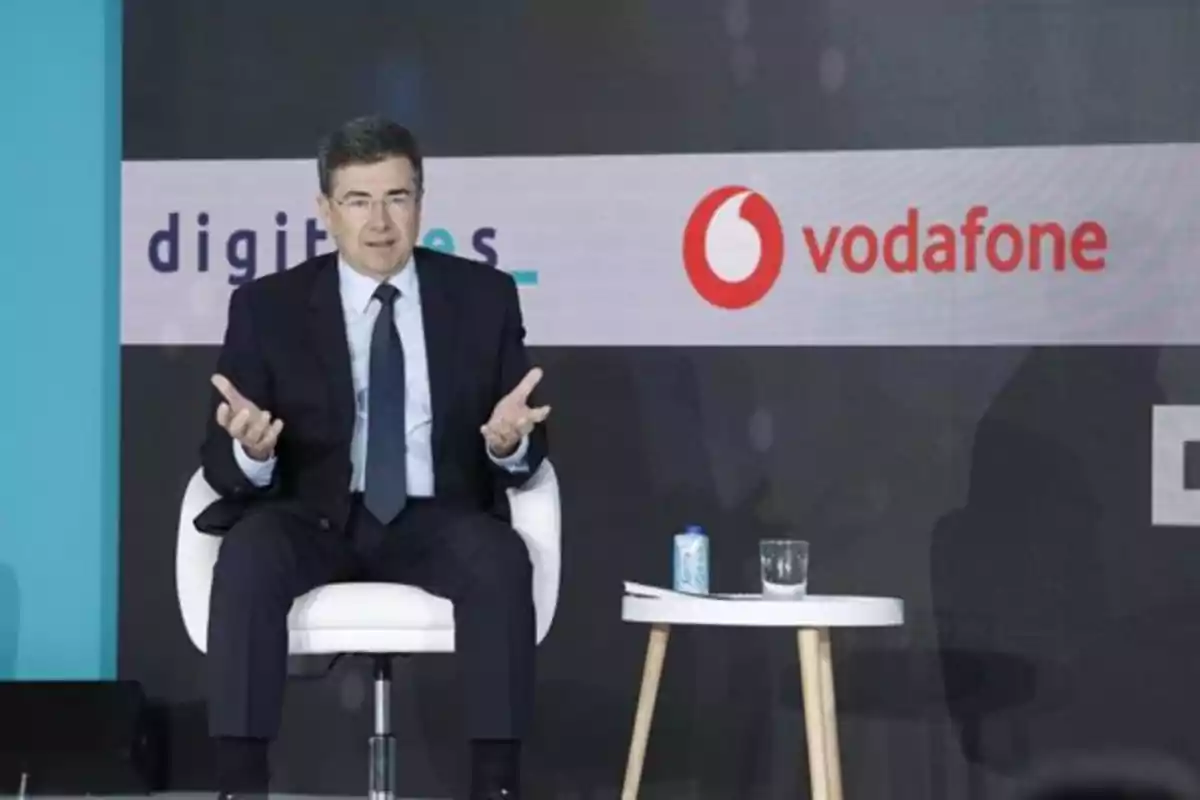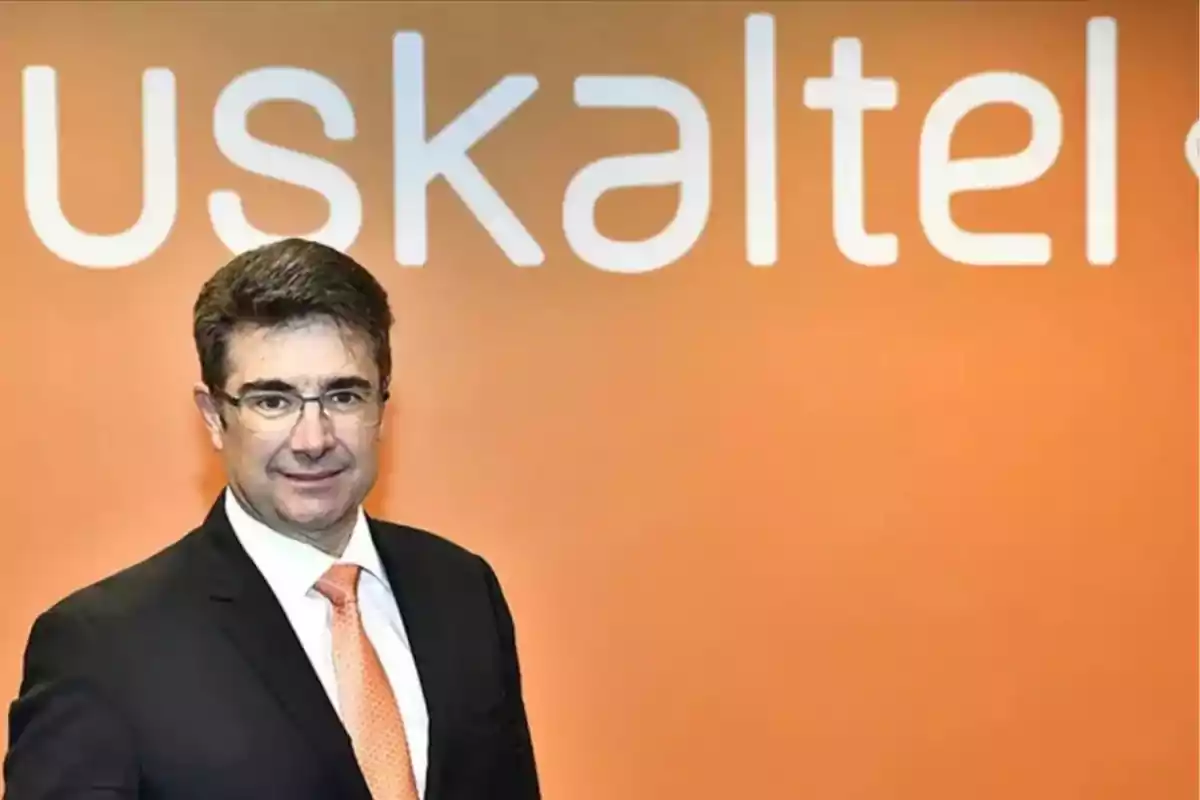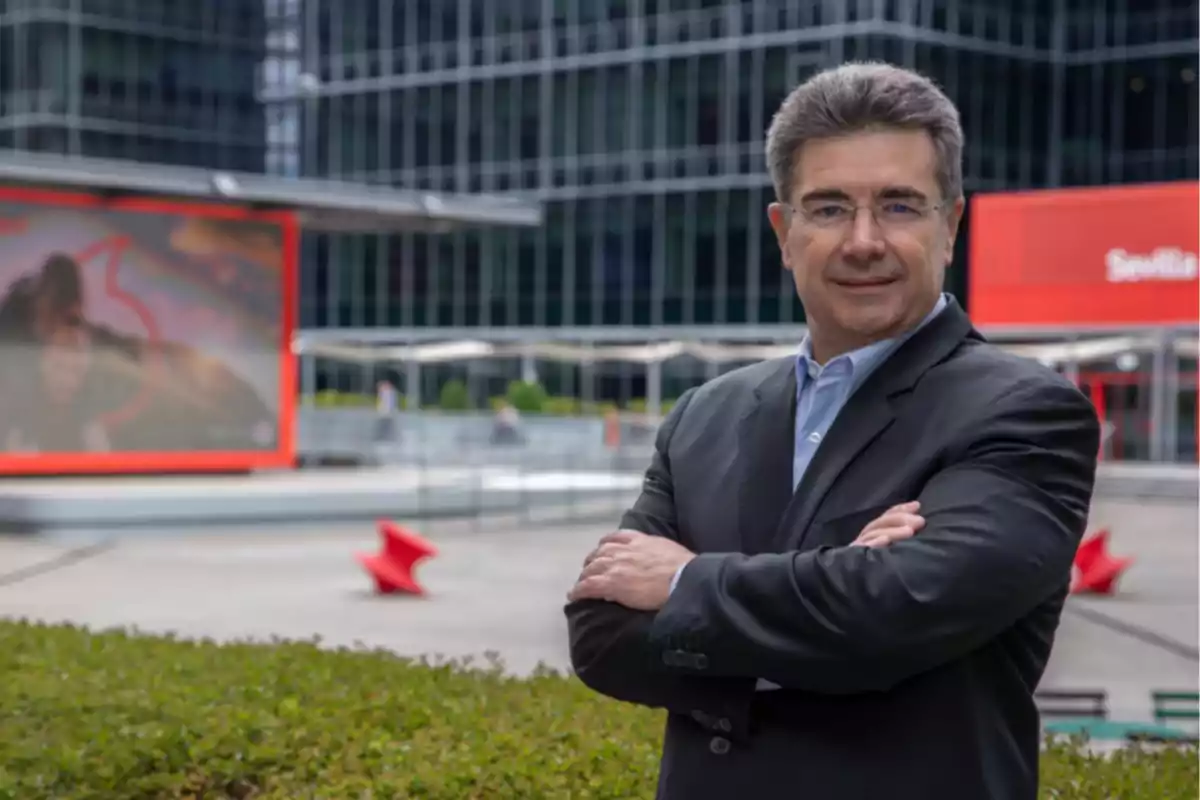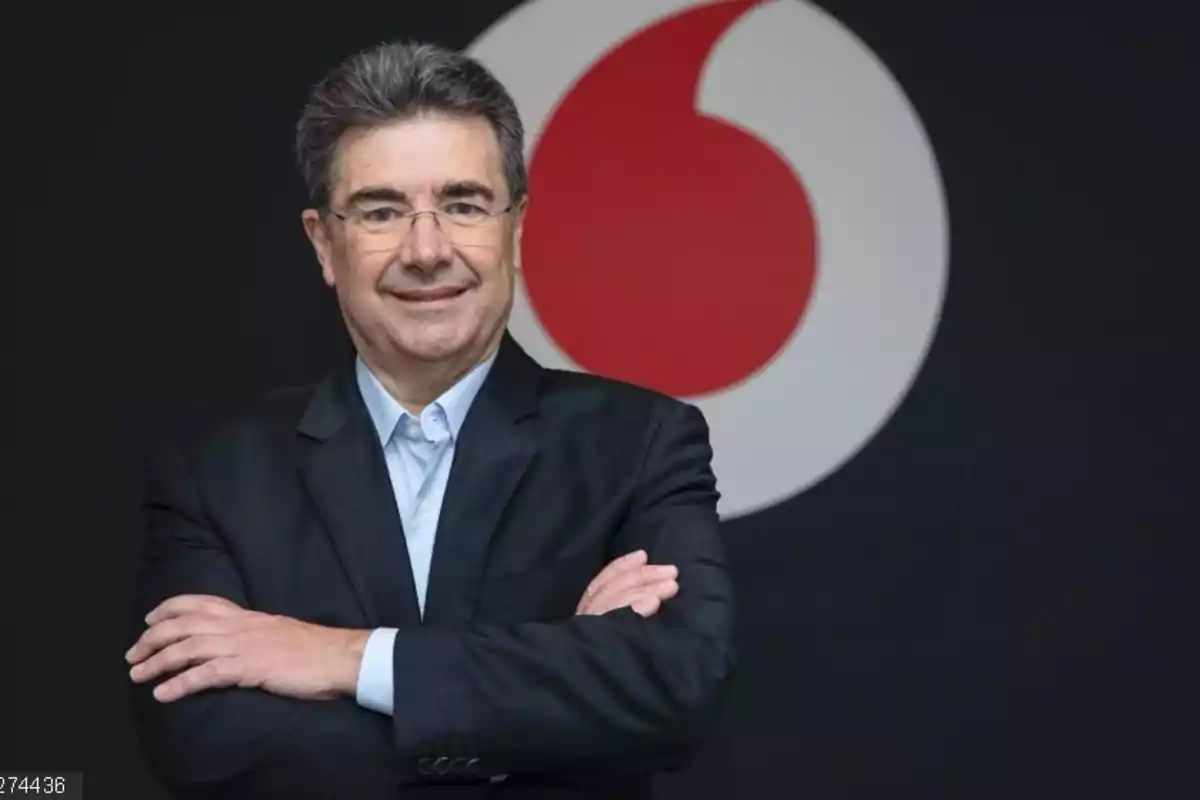
The other side of José Miguel García, Vodafone Spain's CEO who denies its sale
The Madrid native states that there are no plans for a sale while the sector is shaken by mergers and the loss of clients
Amid the ongoing transformation of Vodafone Spain, its CEO, José Miguel García, firmly denied on Wednesday the growing rumors about a possible sale of the company to Telefónica:
"These are unfounded rumors," he stated during his speech at the Digital Summit 2025. "It's strange that this information appears right when we're in the midst of transformation and growth," the executive added.
These statements aim to put a stop to a wave of speculation that had intensified in recent days. At elcierredigital.com, we already pointed out that Telefónica might be exploring ways to acquire Vodafone Spain. This is despite the regulatory limitations imposed by the Government and the high level of debt carried by the operator chaired by José María Álvarez-Pallete.
Meanwhile, Telefónica has also denied any kind of active negotiation.
Born in Madrid in 1962, García earned a degree in Electrical and Electronic Engineering after studying and living in Australia. He completed a master's in Digital Communications at Monash University in Melbourne and lived with that business culture for more than a decade.

His career began at British Aerospace, with later stints at PepsiCo, Rolls-Royce, and as CFO at Tesco, before joining Cable & Wireless through the sale of his own consultancy, Case Technology.
His Entry Into The Telecommunications World Was Consolidated With His Appointment As CEO Of Jazztel In 2006. At that time, he had the support of Cuban Leopoldo Fernández Pujals. He managed to clean up the finances, increase capital, and relaunch the brand, growing it to over 850,000 customers and achieving profits.
Soon after, He Led The Transformation Of Euskaltel (2019–2021), expanding it to Asturias and Galicia, and leading it toward its integration with MásMóvil. His performance in these companies earned him the nickname "Midas of telecoms."

In June 2024, He Officially Took Over Vodafone Spain after its purchase by Zegona Communications for €5 billion, replacing Mário Vaz.
His appointment was subject to a non-compete clause agreed with MásMóvil, which expired at the end of the year. Zegona negotiated a release in early June.
Management Marked By Drastic Decisions
In his first quarter at the helm, García approved a redundancy plan that affected 898 employees, with 75% of departures being voluntary. He also carried out a restructuring of the executive team, opting for a more agile model and bringing in profiles from other operators such as Digi.
At the same time, he launched a new strategy focused on three pillars: operational efficiency, growth of the wholesale business, and technological innovation. The company closed deals with operators such as Silbö Telecom, signed an alliance with Phone House to expand its commercial presence, and opened a new customer service center in Valladolid.
Vodafone Spain Facing An Adverse Market
The situation of Vodafone Spain in the market is complex. According to CNMC data, it holds 21.4% of mobile lines (21.4%), behind Movistar (26.9%) and Orange (21.6%).
In October 2024, It Lost 100,000 Lines, Of Which About 60,000 Were Related To Internal Adjustments With Finetwork. Despite a slight quarterly revenue recovery (1.1%), challenges remain.
The pressure from low-cost operators such as DIGI, Finetwork, or Xenet has squeezed margins and forced major companies to review their strategies. In this environment, Vodafone has chosen to strengthen its wholesale business, opening its network to third parties and seeking new sources of revenue.

One of the pillars of García's strategy is participation in two key network-sharing companies (FibreCo): one with Telefónica to operate 3.6 million housing units (3.6 million), and another with MasOrange, which aims to become the largest fiber network in Europe with 12.2 million homes covered (12.2 million).
However, The Process Of Attracting Investors For These Companies Isn't Meeting Initial Expectations. The offers received are reportedly below €7 billion, far from the desired valuations.
Market tension and infrastructure saturation have complicated Zegona and Vodafone's plans, delaying deadlines and forcing adjustments. All this places the company in a delicate position regarding its deleveraging strategy.
Mixed Results And Competitive Pressure
Vodafone Group closed its 2024-2025 fiscal year with net losses of €3.746 billion. This is despite a 1.9% increase in revenue to €37.448 billion.
The Spanish Subsidiary, Now Separated From The Global Accounts Due To Its Sale To Zegona, Remains Key In The British Fund's Strategy, which trusts it will increase in value in the coming years.
Even so, the threats are palpable. The price war, the emergence of new technology companies, and the decline in ARPU (average revenue per user) pose a structural risk. Industry sources point out that Vodafone needs to stabilize its customer base and make its fiber and 5G network profitable to reverse the trend.

Despite the official denial, various sources indicate that Telefónica has indeed shown interest in acquiring Vodafone Spain, something that would be conditioned by the group's high level of debt (over €27 billion) and Moncloa's opposition to operations that reduce competition in the market.
Zegona's Strategy, Based On The "Buy-Fix-Sell" Sequence, Keeps Open The Possibility Of A Future Divestment If The Desired Revaluation Targets Are Met. The real question is whether García will be able to complete that cycle without external factors precipitating a sale ahead of time.
The Personal Side Of José Miguel García
García Also Stands Out For His Passion For Golf, a hobby that allows him to combine sports and business conversations. He is married and has two children, with whom he keeps a close relationship, according to those who know him as "extremely family-oriented."
His connection with Australia wasn't just professional: there he discovered his love for wine, and in 2022 he launched a small winery in Almería. According to García, that wine project symbolizes his philosophy: adapt, explore, and transform, with an approach far from the traditional standards of Rioja or Ribera.
According to sources close to him, he is also an avid reader. His office houses a collection of books on technology trends, business culture, and personal development. He acknowledges the importance of balancing family and work, a virtue he has passed on throughout his executive career.
García Faces His Second Year As CEO Of Vodafone Spain With An Ambitious Agenda But Surrounded By Pressures.
His management has brought fresh air, but the results haven't yet consolidated the desired turnaround. For now, the company isn't for sale, at least according to its top executive. However, movements in the sector suggest that the last word probably hasn't been said yet.
More posts: